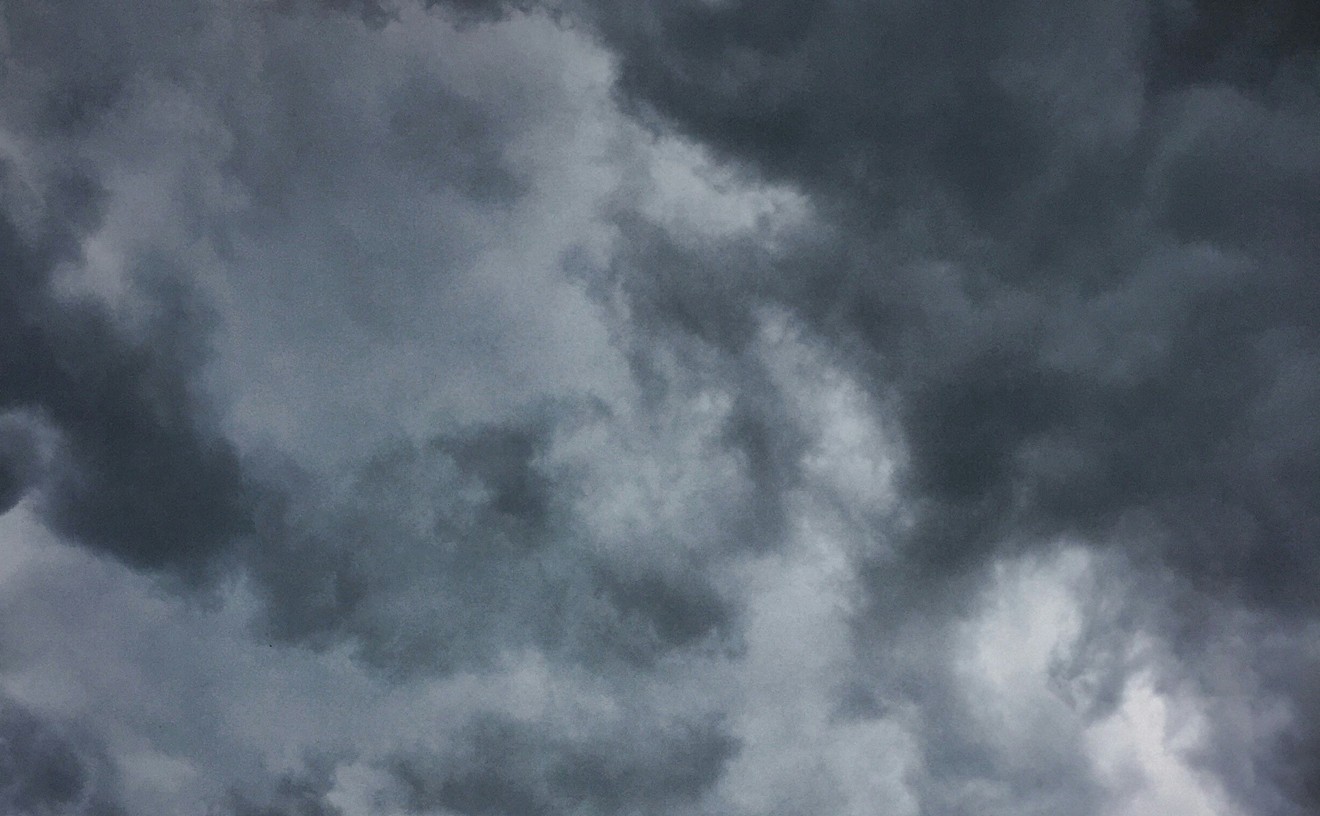Around lunchtime yesterday, Dawn Rizos was walking through The Lodge, the Spangler Road strip club she owns, when her adult daughter handed her a freshly printed-out copy of this Texas Tribune story. Supporters of the so-called "Pole Tax," a five-dollar fee tacked on to every visit to a strip club, had suffered yet another defeat after lawmakers tried to direct the revenue to victims of sexual assault.
"Well, that's good news," Rizos said, moving through the business end of Dallas's classiest (according to us) strip club, which includes a fountain, a small gym, a spa and a practice pole, where the club hosts a regular
"strip for your lover" classes and bachelorette parties.
The failure of the measure doesn't mean the pole tax itself
is dead. It's still stuck in Supreme Court limbo, and Rizos
and the rest of the Lodge's management have no idea when the court will
reach a ruling. "Nothing is really resolved," said Michael Precker, the
Lodge's co-manager and a former Dallas Morning News reporter who famously made the professional jump from journalism to strip clubs. "It's just one less headache for the industry."
Also known as the "sin tax," the controversial measure was first passed
by the Legislature four years ago, requiring every strip club patron to
pay an extra $5 upon entering a gentleman's club. The money was supposed to go toward programs to
aid victims of sexual assault and a low-income health insurance program.
The tax was collected (at least theoretically) at all the strip clubs in
the state in 2008, but none of the funding went towards
sexual assault victims or the uninsured, as the measure's been tied up in
litigation for years. Strip club owners argue that the measure
amounts to a tax on free speech and implies their business is
somehow responsible for violence against women. Last year, the suit made it all the way to the Texas Supreme Court, where it's been moldering ever since.
The tax reappeared in this year's special session as part of SB 7, the behemoth health-care bill that also brought you that intrusive abortion questionnaire. Then it was tacked onto SB1, the budget bill that included public education cuts. Both times, the lawmakers behind it wanted to change the tax so that all the proceeds went towards the sexual assault victims programs, rather than sharing the revenues with the insurance measure. Yesterday afternoon, as Rizos kept watch on the club's lunch business, Emily Ramshaw reported that the attempt had failed.
I'd originally called Rizos to get her take on Newt Gingrich's implosion of a presidential campaign, since it was Gingrich who once gave Rizos a small-business award before reneging on the honor. She declined but invited me to lunch anyway.
"We've had our fun with the Newt thing," Precker explained. "But at this point it just feels like piling on. He's really been the gift that keeps on giving, though." (By the way, Newt, that lifetime membership at the Lodge is still waiting for you.)
At peak times, up to 90 dancers work the floor of the Lodge; at lunchtime, though, it's quieter, with only about 30 women clocked in, dancing and pole-spinning and somehow, miraculously, not adjusting their g-strings every two minutes. We took a seat in an empty back room, where Rizos and Precker broke down their objections to the pole tax.
In 2008, Rizos said, the Lodge paid over $600,000 a year toward it. "I don't think it's fair," she said. "And there's no way to make it fair." She's heard "that a lot of the clubs just didn't pay it at all."
But it's not the money going out that worries her, she said. It's the stigma coming in.
"They're saying we exploit women somehow," she said, taking a delicate bite of the sautéed spinach that accompanied her pork chop. (Somehow her glossy pink lip gloss stayed immaculate.) "We already pay $2 million a year in taxes. We do charity work, we hold fundraisers, and we support worthy causes." (That $5,000 that Gingrich team refunded to the Lodge? They turned it around and built a lavish animal shelter, which they named Newt's Nook).
"I resent having another paper trail to follow," Rizos said. "If it was something fair and reasonable, maybe I could support it." The tax, she said, was hard enough to bear for large, profitable clubs like hers; for smaller clubs, the extra expense is enough to drive them out of business.
But that may be precisely the point of the tax, Precker said. "Some people think we're a scourge," he explained. "You know, 'These perverts oughtta be shut down!'"
That attitude, Rizos said, the judgment of her as a filth-monger, is why she doesn't tell anyone who doesn't know her what she's does for a living anymore. "I just tell people I manage family properties," she said.
In the next room, the lunchtime patrons had mostly evaporated. A dancer stood to one side of the bar, looking pensive and adjusting a pair of powder-blue satin shorts. Rizos had one more thing to add before she excused herself to head back to her office upstairs.
"I don't feel like I have anything to hide," she said, even if she's not always eager to discuss her occupation with strangers. She's proud of her establishment, she said, and of the way they treat their dancers: the incentives they get for timeliness, the on-site hair and makeup, the college scholarships they give out.
"This is the club they all want to work for," Rizos said, smiling a little. "We make plenty of money in here, and everything takes care of itself. I could make more money if I did things differently. But I have to be OK with what I'm doing at the end of the day."










